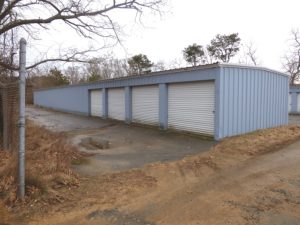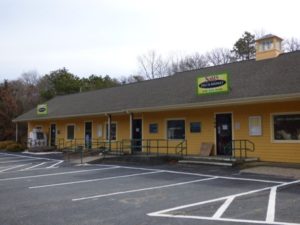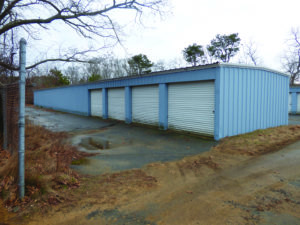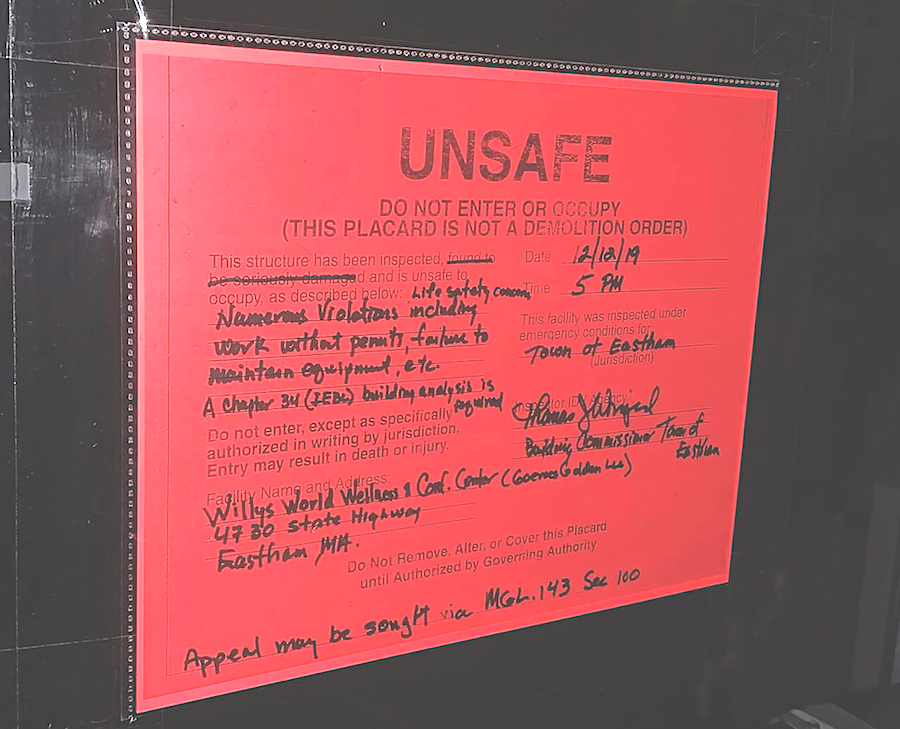EASTHAM — After an informal poll of the planning board revealed that four of six voting members — one short of the needed supermajority — would approve Barbara Niggel’s application for a special permit to build five storage buildings adjacent to Willy’s Gym, the application was withdrawn.
Attorney Ben Zehnder, representing Niggel and her companies Goeroe’s Goldens and Stow Away, performed the maneuver at the board’s May 20 meeting in order to preserve the right to come back with a new request. If the board had taken a formal vote that went against the applicant, the case could not be reopened for two years.
Zehnder’s request to withdraw the proposal “without prejudice” was granted.
A supermajority is required from the planning board for site plan special permit approval under town bylaws. The planning board has seven voting members, which means five would constitute a supermajority.
Even though there were only six members voting at the meeting, the project still needed five yes votes for supermajority approval, according to Town Planner Paul Lagg.
Niggel’s special permit application to construct five 14-foot-tall storage buildings at 4730 Route 6, the site of Willy’s Gym and four existing storage buildings, all of which Niggel owns, has come before the planning board and zoning board of appeals a number of times since the beginning of the year. The ZBA unanimously rejected the application on April 2.
The location of the project is in the Eastham Corridor Special District (ECSD). Creation of that district was approved at town meeting in 2019. Its purpose is “to enhance and protect the character of Eastham’s commercial areas, encourage mixed-use development, support and enhance the economy in North Eastham, improve bicyclist and pedestrian safety and access along the Route 6 corridor, minimize traffic conflicts and improve access management throughout the District, expand opportunities for creation of affordable housing, and adopt best management practices to manage nutrients discharged through storm water within the district.”
The construction of storage buildings in this district requires a special permit, and the planning board is the permit granting authority. A special permit is also required from the ZBA because the project would result in an intensification of the existing nonconforming storage use on a mixed-use property.
Art Autorino, chair of the planning board, was one of the four members in favor of the project.
“I think it’s a good use of the property,” Autorino said. “It’s not really being utilized right now. I think it brings more revenue to the town, it brings more employees to the town, and I don’t think it’s a burden on the neighbors.”
Niggel’s original was to build six storage buildings containing 180 units. She modified it to involve five buildings with fewer than 180 units, but did not specify the exact number. Zehnder said that Niggel paid $10,000 to conduct a market feasibility study to show there is a need for more storage units in that area of town.
The two board members who said they would vote against the proposal, Lauren Barker and Joe Manas, had differing reasons. Manas said he wasn’t comfortable with the possibility that hazardous substances might leak from the storage units into groundwater.
The project also falls within the town’s Groundwater Protection District. This is an overlay district superimposed on other zoning districts and applies to all new construction, reconstruction, or expansion of existing buildings and new or expanded uses, according to town bylaws.
Barker took issue with the feasibility study conducted by consulting company Self Storage 101.
“I don’t see a clear market need from that study,” she said. “We talked about jobs in terms of economic benefit previously, but I’m seeing now in the budget information that those are $26,000-a-year jobs, which does not seem like a very good paying job.”
The special permit criteria include the planning board’s evaluation of the adverse effects of the proposed use and whether they outweigh its potential benefits to the neighborhood.
Barker said she didn’t think the economic benefit was enough to outweigh a loss of neighborhood character. Numerous abutters of the proposed project have complained in the last few months about trash at the four storage buildings Niggel currently operates, as well as concerns that groundwater at the site could be affected by hazardous materials.
Zehnder argued that the market study did show an unmet need for the storage buildings in town.
“If this need weren’t there for storage units, Barbara wouldn’t be spending all this money to build them — it’s really that simple,” he said. The market study compared the proposed operation to Wellfleet Sun Self Storage, but did not include Magnum Moving and Storage in Eastham.
Attorney David Reid, representing Steve Magliano of Magnum Moving and Storage, said his client does not believe the use is appropriate for the proposed site.
“My client’s business is located only a half mile away,” Reid said. “They have over 30,000 square feet of storage capacity, and they tell me that they’re only about two-thirds full.”
Zehnder said the proposed operation is different from Magliano’s business.
“This is not a warehousing application,” he said. “This is where individual retail customers come in in small vehicles. That’s a very different use.”
The project application can be brought before the planning board again, while the ZBA’s rejection would have to be appealed by the applicant to move forward.









